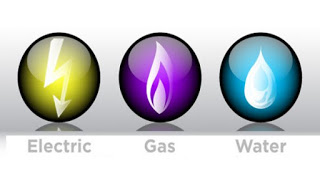This paper belongs to Andrei Rogac, for more similar works please follow: The Law’s Economic’s blog.
Background
The Republic of Moldova has committed under the Association Agreement (AA) with the European Union to progressively approximate the ‘ EU acquis communitaire’, including in the public procurement sector (Chapter 8 of the AA). Under Annex Annex XXIX-B, Moldova is obliged to transpose until 2020 the Directive 2014/25/EU on procurement by entities operating in the water, energy, transport and postal services sectors (from now on the ‘Directive’).
 Besides, the Republic of Moldova is a party to the Agreement on Government Procurement of the World Trade Organisation (GPA) since 24 June 2016. Under the GPA, Republic of Moldova is obliged among other things to introduce minimum transparency and equal opportunity standards and open up via competitive selection the procurements above 400’000 SDR of entities listed in Annex 3 of the GPA. Although this international provision is in force since 26 June 2016, overall, only a fraction of these entities comply with the minimum GPA transparency and competition requirements.
Besides, the Republic of Moldova is a party to the Agreement on Government Procurement of the World Trade Organisation (GPA) since 24 June 2016. Under the GPA, Republic of Moldova is obliged among other things to introduce minimum transparency and equal opportunity standards and open up via competitive selection the procurements above 400’000 SDR of entities listed in Annex 3 of the GPA. Although this international provision is in force since 26 June 2016, overall, only a fraction of these entities comply with the minimum GPA transparency and competition requirements.
To address this shortcoming, the Ministry of Finance has elaborated a draft Law on procurement by entities operating in the water, energy, transport and postal services sectors (from now on the ‘the draft Law’) transposing the Directive 2014/25/EU. The draft Law was voted on 6 February 2020 by the Parliament of Moldova in the first reading (the text can be found here).
The objective of this legal memorandum is to provide a review of the draft Law against the Directive 2014/25/EU and the GPA WTO and its overall consistency. The findings below show that there is scope for adjusting the draft Law for the second reading in the Parliament whenever this may be.
The draft law fails to regulate and provide legal status to the electronic Register of procurement contracts. The electronic Register of procurement contracts is not mandatory under the Directive. However, the draft Law obliges to the contracting entities to conduct their procurements in electronic format and maintain a procurement record. The electronic Register of procurement contracts shall be part of the procurement record. This register shall contain all the data of the concluded procurement contracts and allow better monitoring in terms of how the law is enforced and an electronic tool for easier reporting to the WTO as prescribed by article XVI (4) of the GPA. Also, the electronic Register of procurement contracts should be mandatory for contracts below the threshold which are outside the draft Law (Article 1). This would allow better monitoring and a tool for detecting cases of splitting procurements to avoid the Law.
Article 1 of the draft Law regulates thresholds. This provision determines only thresholds starting from which the Law is applicable. However, this article does not follow the same approach from the Law on public procurement 131/2015, where EU thresholds have been separated in an individual paragraph because of some peculiarities specific for these high-value procurements:
| o the obligation to publish procurements notices in the EU Official Journal;
o longer bidding periods to comply with the Directive 2014/24/UE; o longer standstill and contestation period; o longer clarifications period; o the option to draft tender documents in a foreign language to facilitate cross-border bidding; |
Because the draft Law does not make this distinction, the minimum bidding period for open tender is 35 days (article 36) irrespective of the threshold. The same argument is valid for standstill and contestation period, clarifications period. This will make national threshold procurements without any reasonable justifications more lengthy. The draft Law should follow the same approach as in the Law on public procurement 131/2015.
Article 1 (5) from the draft Law should be amended from
| “Procurement contracts whose estimated value, net of VAT, does not exceed the thresholds mentioned in paragraph (1) shall be regulated by the Government”
to “Procurements whose estimated value, net of VAT, does not exceed the thresholds mentioned in paragraph (1) shall be regulated by the Government”. |
Below the threshold, procurements should be regulated by the Government and not only the “Procurement contracts”, which should be regarded as part of the procurement cycle.
Article 4 (5) of the draft Law incorporates in general art. 4 (3) Directive 2014/25/EU, however, the former missed the inclusion of an important part. The current text of Article 4 (5) of the draft Law:
| Rights which have been granted by means of a procedure in which adequate publicity has been ensured and where the granting of those rights was based on objective criteria shall not constitute special or exclusive rights within the meaning of the paragraph (4). |
The Directive 2014/25/EU in art. 4 (3), further explains that:
| Such procedures include:
(a) procurement procedures with a prior call for competition in conformity with Directive 2014/24/EU, Directive 2009/81/EC, Directive 2014/23/EU or this Directive; (b) procedures pursuant to other legal acts of the Union listed in Annex II, ensuring adequate prior transparency for granting authorisations based on objective criteria. |
Without this part, it would be difficult for the contracting entities to ascertain which procedure is considered to have „adequate publicity” and that awarding was done using “objective criteria„. In order to enforce the legal certainty principle, the text mentioned above should be transposed in Article 4 (5) of the draft Law.
Article 5 from the draft Law provides that procurements shall be conducted only through a working group which has a minimum of three members. The efficiency may be increased if procurements below EU thresholds are allowed to be conducted by the procurement officer (thresholds are regulated in art. 1 of the draft Law which unfortunately does not have EU thresholds separated as it is in the Law on public procurement).
Further, the procurement officer should be a mandatory part of the working group and shall be responsible for registering the decisions of the working group in the electronic procurement system. Also, it is recommendable to follow the same approach as in the Law on public procurement and include members of the civil society in the working group with an advisory vote. As a last remark, this provision should mention that special rules on formation, working, and decision making of the working group shall be set in a separate Regulation approved by the Government.
Article 9 (2) from the draft Law, should use instead of “economic operators” the expression from art. 8 (2) of the Directive 2014/25/EU – “contracting entity other than a contracting authority”. The latter citation means, in corroboration with art. 4 of the Directive, that the provision shall be applicable to undertakings that comply cumulatively with the following two requirements (i) have as one of their activities any of the activities referred to in Articles 8 to 14 (ii) and operate on the basis of special or exclusive rights granted by a competent authority.
Further, paragraph 2 from article 9 of the draft Law is an exception to paragraph 1 of the same article. The latter applies to all contracting entities, and the former should apply to a „contracting entity other than a contracting authority” and not „economic operators” as it is currently in the draft Law. The same pattern of wording can be noticed and should be addressed in art. 10 (2) of the draft Law vs. art. 9 (2) of the Directive, art. 11 (3) of the draft Law vs. art. 10 (3) of the Directive
Article 25 from the Directive regulating mixed procurement covering the same activity and involving defence or security aspects was not transposed. The decision not to transpose this article is strange bearing in mind that the subsequent article 26 from the Directive on the provision of procurement covering several activities has been incorporated via article 23 from the draft Law. The problem with transposing article 25 from the Directive is that Moldova has not yet incorporated the Directive 2009/81/EC on procurements in the fields of defence and security and the TFEU (art. 346) has no legal force in Moldova. Nonetheless, the solution should be, when exempting procurements related to defence and security from procurement law coverage, to use the general language (ex.: “aspects related to defence or security”).
The Moldovan Government has followed the approach from the Law on public procurement (131/2015) and has refused to incorporate art. 28 from the Directive regulating cases of exempting some procurements between contracting authorities from the law coverage.
With due account of the Moldovan context, this means that procurement contracts signed by contracting authorities with controlled by them entities (vertical cooperation) shall be covered by the law and thus, subject to competitive procedures. This limits the possibility of the contracting authorities to use their internal resources to discharge their public service duty. Further, even horizontal cooperation between contracting authorities shall be covered by the law and thus, subject to competitive procedures.
Article 24 of the draft Law transposes article 29 of the Directive which excludes from its scope contracts awarded to an ‘affiliated undertaking’. Article 24 of the draft Law explains what an ‘affiliated undertaking’ is, among other things, where the contracting entity exercises a ‘dominant influence’. However, this article missed to incorporate the subparagraph that clarifies that „… ‘dominant influence’ shall have the same meaning as [the dominant influence exercised by contracting authorities over public undertaking – the second subparagraph of Article 4(2)]”. This is an important provision because it gives clarity concerning what is actually a dominant influence in ‘affiliated undertaking’ cases. Thus, Article 24 of the draft Law should include that ‘dominant influence’ shall have the same meaning as in article 4 (3) of the draft Law”.
Article 25 from the draft Law incorporates article 30 from the Directive, which exempts from law coverage contracts awarded to a joint venture or a contracting entity forming part of a joint venture. The translation of ‘joint ventures’ in Romanian language (o asociație în participațiune) is not common in the Moldovan legislation and may suggest another form of organisation of legal entities. That is why this article should explain that „joint ventures (o asociație în participațiune) within the meaning of this article may take the form of a private or public entity as the case may be”.
Article 27 from the draft Law obliges contracting entities to report ex-post to the Public Procurement Agency (PPA) all the procurement contracts that have been concluded based on law exemptions from chapter III (article 16 to 26). This article should be amended to institute an obligation of the contracting entities to register all the procurement contracts, falling under the law exemptions from chapter III of the draft Law, within the electronic Register of procurement contracts using the electronic public procurement system. This would allow better monitoring and open data in digital format that can be afterwards processed by the PPA. Reporting on paper or via e-mail to the PPA increases exponentially the cost of processing and storing this valuable data.
Articles 34 and 35 from the Directive create an exemption for the EU Member States when one of the utility markets is exposed to effective competition. The justification is that undertakings operating in a competitive market, irrespective of their private or public ownership, are already under pressure to lower their purchasing costs with the risk of being thrown out of the market. If such markets exist, EU Member States may request the Commission to issue an implementing act. Because Moldova is not an EU Member States, these articles have not been transposed in the draft Law. Nonetheless, in Moldova, the passenger transport market in some regions could be regarded as exposed to effective competition. For this reason, the Moldovan legislator should transpose the provisions referred to and empower the Competition Council to issue an implementing act establishing detailed rules for the application of article 35 from the Directive.
Article 39 (1) from the Directive makes it clear that information for candidates and tenderers from the Contract Award Notice (article 70) and the content of information on the result of the tender (article 75) shall not be considered confidential. Article 31 from the draft Law, which transposes Article 39 from the Directive fails to make reference to Articles 59 (Contract Award Notice) and 62 (Informing applicants on the results), thus, making unclear the status of this information.
Article 32 from the draft Law largely copies article 40 from the Directive. Although in Moldova there is an electronic procurement system MTender, Article 32 from the draft Law does not make any reference to it.
The draft Law fails to incorporate article 44 from the Directive on the choice of procedures. This article explains that the default procurement procedures are open or restricted procedures or negotiated procedures with a prior call for competition and that competitive dialogue and innovation partnership shall be applied only in specific cases provided by the Directive. In addition, it clarifies the means to be used for making a call for competition and its exceptions. Lastly, this article stresses that negotiated procedure without prior call for competition shall not be allowed in any other cases than those referred to in article regulating the use of the negotiated procedure without prior call for competition. Thus, this article provides clarity to contracting entities on the choice of the procurement procedure. Consequently, it is highly advisable to transpose this article into the draft Law.
Regrettably, the draft Law in article 36 (Open Tender) does not set lower bidding periods for below EU and WTO GPA thresholds. This will make national threshold procurements without any reasonable justifications more lengthy. In addition, there are no separate shorter bidding periods for the state of urgency cases as in the Directive (art. 45 (3)).
For Open Tender the GPA at art. XI paragraph 3 stipulates that the minimum bidding period shall not be less than 40 days from the date on which the contract notice is published. The following paragraph 4 of the same article, allows to reduce the 40 days’ time-period for tendering to not less than 10 days where the procuring entity has published a Prior Information Notice – PIN (anunț de intenție) at least 40 days and not more than 12 months in advance from the publication of the contract notice. Thus, under the GPA if the PIN is published with at least 40 days in advance, the contracting authority may reduce the 40 days minimum bidding period. However, the remaining time shall not be less than 10 days. The Moldovan legislator has set in article 36 (3) and (4) from the draft Law that in case where, the publication of the contract notice is coupled with the publication with 35 days advance of the PIN, the contracting authority may reduce the 35 days publication period, however, the remaining time shall not be less than 20 days. The latter period in the Directive (art. 45 (2)) is set to commence from 15 days. Thus, if the PIN is published in advance the (i) GPA allows not less than 10 days, (ii) the Directive not less than 15 days, and the (iii) draft Law not less than 20 days – minimum bidding period. In conclusion, the Moldovan legislator can reduce the latter period with five days, bearing in mind that the Contract Notice and PIN shall be published electronically under the draft Law.
Article 37 fails to insert the Directive explanations from art. 50 letter a) that a „A request for participation shall be considered not to be suitable where the economic operator concerned is to be or may be excluded according to Articles 78(1) or 80(1), or does not meet the selection criteria laid down by the contracting entity pursuant to Articles 78 or 80”.
The definition of the electronic auction in the draft Law (art. 44 (1)) was taken from article 53 of the Directive which stipulates that the electronic auction occurs after an initial full evaluation of the tenders.
When conducting a public procurement procedure on the MTender system, the electronic auction is organised before the initial full evaluation of the tenders. Afterwards, only the winner of the electronic auction is subject to a full evaluation. This workflow was designed to streamline the process and make the evaluation of tenders more effortless for the contracting authority since subject to full evaluation is exclusively the bid that has been successful at the electronic auction stage. Moreover, the disclosure by the system of the name of the bidders only after the electronic auction limits the possibility of collusion between bidders exponentially.
For this reason, the draft Law should allow electronic auction to occur before a full evaluation of the tenders. Moreover, the law has to permit full evaluation exclusively to the winner of the electronic auction, and in cases of its non-responsiveness, the evaluation of the following ranked bid.
The draft Law requires the procurement notices to be published in the Public Procurement Bulletin. However, the latter does not qualify as ‘electronic publication’ within the meaning of the Directive. Moreover, articles 57 to 59 from the draft Law concerning PINs, contract notice and contract award notice does not make any reference to the obligation of the contracting entities to publish these in the Official Journal of the EU in cases of EU threshold procurements, which is contrary to the Directive (art. 67-70).
Besides, article 57 from the draft Law regulating the Prior Indicative Notice misses saying that „the period covered by the periodic indicative notice shall be a maximum of 12 months from the date the notice is transmitted for publication” (article 67 (1) from the Directive).
The draft Law fails to designate which public authority, either the Ministry of Finance or the PPA, will approve the templates of the procurement notices and that these should be in line with the EU templates when conducting EU threshold procurements. In case this is not decided, we may have the same unpleasant scenario as in the public procurement sector where some of the procurement notices are not officially approved, however, published on the PPA website and used across-the-board by the contracting authorities.
For GPA threshold procurements the publication of the summary of the contract notice in one of the WTO official languages is not an option but an obligation of the contracting entity (art. 58 (2) from the draft Law), thus, the latter article should be amended accordingly.
Article 63 of the draft Law regulates the standstill period, which is set to be 11 days. The same standstill period is provided in article 32 of the Law on public procurement for EU threshold procurements. In contrast, the latter law sets a 6 day standstill period for below EU threshold procurements. The draft Law should follow the same approach. This will make below EU threshold procurements more speedy and efficient. Plus, considering the assumption that for these procurements there is no cross-border interest, consequently, there are no objective reasons to have as well an 11 days standstill period.
Article 65 from the draft Law transposes art. 78 on ‘Criteria for qualitative selection’ from the Directive. Paragraphs (1) and (2) from the former article mirror the content of the latter article. Nonetheless, the Moldovan legislator has decided to include in the following two paragraphs, the mandatory exclusion grounds related to previous criminal offences from article 19 (1) and (2) from the Law on public procurement (transposing Article 57(1) and (2) of Directive 2014/24/EU). From legal drafting point of view, this is inappropriate because (i) the name of article 65 suggests that only ‘Criteria for qualitative selection’ shall be regulated in this article and (ii) the following article 66 from the draft Law is designed to encompass and regulate exclusion grounds as the name of this article suggests “Use of exclusion grounds and selection criteria provided for under Law no. 131/2015 on public procurement”, thus, paragraphs (3) and (4) from article 65 shall be moved to article 66 from the draft Law.
In addition, the text of paragraph (3) from article 65, makes the same mistakes as paragraph (1) from art. 19 (1) from the Law on public procurement. The criminal offences listed are not in any way linked to the criminal offences from the Moldovan Penal Code (PC). The Penal Code incriminates such crimes like active (art. 325 PC), and passive (art. 324 PC) corruption and traffic of influence (art. 326 PC) called corruption intermediation. Also, the Penal Code punishes corruption in private sector separately (art. 333 and 334 PC). Does the word corruption cover all these offences from paragraph (3) from article 65 of the draft Law? Moreover, the PC does not have a similar offence as ‘fraud’, only something related (Article 332/1 CP ‘Fraudulent obtaining of external funds’). The solution would be to list the exact articles from the Penal Code that are applicable.
Paragraph (3) from article 65 uses the wording ‘convicted, by final court decision’ (condamnat, prin hotărîrea definitivă a unei instanţe judecătoreşti). The Penal Procedural Code uses the concept of ‘Sentence’ (Sentință) and not Decision (Hotârâre), when a person is condemned for a criminal offence. Further, the Penal Procedural Code uses two concepts of a Sentence, a final one and irrevocable one. A Sentence is final after its reviewal on facts and law by the Court of Appeal, and a Sentence is final and irrevocable after its reviewal on points of law by the Supreme Court of Moldova (art. 466 Penal Procedural Code) or it may become final and irrevocable if the Sentence of the first instance court was not appealed in time. Thus, Paragraph (3) from article 65 should use the expression ‘convicted, by final and irrevocable court sentence’ (condamnat, prin sentință definitivă și irevocabilă a unei instanţe judecătoreşti) to suggest that in order to exclude an economic operator it is required to have a final and irrevocable sentence.
The legislator has chosen to allow self-declarations (art. 68 from the draft Law) as preliminary evidence in replacement of certificates issued by public authorities or third parties confirming that the relevant economic operator meets the relevant qualification and selection criteria and that it is not in one of the exclusion situations referred in the draft Law.
Nonetheless, the draft law fails to specify which public authority, either the Ministry of Finance or the PPA, will approve the template of the self-declaration. In addition, it is recommended to have a simple version of the self-declaration for the below EU threshold procurements, and a longer version for above these thresholds. Lastly, the draft law does not expressly mention that only electronic self-declarations shall be accepted.
Articles 69 and 70 from the draft Law transposes article 79 on ‘Reliance on the capacities of other entities’ from the Directive. Nevertheless, the articles from the draft Law failed to incorporate the obligation of the contracting entities to verify in accordance with Article 65 and 66 of the draft Law whether the other entities on whose capacity the economic operator intends to rely fulfils the relevant selection criteria or whether there are grounds for exclusion. And if the entity on whose capacity the economic operator intends to rely fails to meet these, the contracting entity shall require its replacement (art. 79 (1.2) Directive).
Lastly, the draft Law has not incorporated paragraph 1.1 from article 79 of the Directive (Reliance on the capacities of other entities). This may suggest that the institution of reliance on the capacities of other entities may not be available when the economic operator is applying for a qualification system. This gap should be addressed via transposing the latter provision from the Directive.
Article 79 from the draft Law transposes article 88 on ‘Subcontracting’ from the Directive. The language of the Directive on subcontracting is very complicated and misleading even for a procurement specialist. That is why the draft Law should adopt a more straightforward language and structure of this article.
The Directive does not say that subcontracting is generally allowed. However, from a practical point of view, it should have. The disclosure of subcontractors should be an obligation, in contrast with art. 88 (2) from the Directive which uses the word “may”. Otherwise, this would be inconsistent with the transparency principles.
Further, art. 79 from the Directive is puzzling. It stipulates that when the bidder relies on third parties for backing such criteria as ‘educational and professional qualifications’ or the ‘relevant professional experience’ it means that third party will perform directly the works or services for which these capacities are required [79.1.1], and the contracting authority shall verify if that third party ‘fulfils the relevant selection criteria and whether there are grounds for exclusion’ [art. 79.1.2]. This direct performance by a third party represents a mandatory subcontracting scenario in case the tenderer needs reliance with regards to ‘educational and professional qualifications’ or the ‘relevant professional experience’. Thus, another legal regime is applicable, art. 88 – subcontracting. The Directive should have made this clarification.
In addition, art. 79.3 from the Directive is a perfect example of the exception to the rule that subcontracting is generally allowed. This norm restricts subcontracting emphasising that it may be required that ‘certain critical tasks be performed directly by the tenderer itself’ (Swm Costruzioni case). This provision geographically should not be in the article on reliance but on subcontracting. What is even more confusing is that art. 79.3 from the Directive has not been transposed in the draft Law. This will create debate among contracting entities whether they are allowed or not to restrict subcontracting for some critical works or services.
Bearing in mind the aforementioned, Article 79 from the draft Law on ‘subcontracting’ should have the following structure.
The first rule should be that subcontracting is allowed, and exception cases where direct performance is compulsory, like in article 79 (3) from the Directive (art. 70 (4) from the draft Law) or when the contracting authority is unable to scrutinise the subcontractor. Further, this article should outline the general obligation to disclose subcontractors at the bidding stage or the percentage of the subject-matter of the tender the tenderer intends to subcontract if the subcontractors are unknown at this stage. Afterwards, to insert the obligation to disclose subcontractors to the contracting entity after the signing of the procurement contract and the inability of the subcontractor to start his performance before qualification and exclusion grounds clearance. To what extent subcontractors of the main subcontractors are allowed, the so-called supply-chain control. That the main tenderer is liable before the contracting entity for the procurement as a whole, and exceptions to this. The obligation of the subcontractor to abide by horizontal policies in public procurement (art. 28 (3) from the draft Law). Afterwards, the article should outline using the wording from art. 79.3 from the Directive cases when subcontracting is not allowed. The rules on direct payment should remain as they are now in the draft. And lastly, it is recommended to add the possibility to exclude a subcontracting arrangement if it turns out that it restricts competition by object or effect.
The application mutatis mutandis of the remedies procedure from chapter X from the Law on public procurement is an intelligent solution (art. 88 of the draft Law). Nonetheless, the legislator should clarify in the draft Law which period for contesting contracting entities acts shall be applicable, 5 or 10 days, bearing in mind that the draft Law does not distinguish between national and EU thresholds as the Law on public procurement does. Since the standstill period is 11 days (article 63 of the draft Law), it can be inferred that the legislator intends to allow 10 days period for contesting contracting entities acts (to comply with the Utilities Remedies Directive 92/13/EEC -art.2c).
In addition, the solution to contested tenders in the public procurement sector is very much dependent on art. 71 from the Law on public procurement which outlines the grounds for setting aside a public procurement procedure. The latter article is not located in chapter X from the Law on public procurement, meaning that it is not incorporated via a reference in the draft Law, which does not have a similar article. Thus, the recommendation is to transpose art. 71 from the Law on public procurement into the draft Law with the appropriate adjustments.
Article 64 of the draft Law transposes art. 77 from the Directive on ‘Qualification systems’. The article from the draft Law is incomplete because it does not expressly provide for the right to challenge the contracting entities refusal to include the economic operator in the qualification system and the period for doing that. The application mutatis mutandis of the remedies procedure from chapter X from the Law on public procurement does not give a straight solution (art. 88 of the draft Law). For this reason, article 64 of the draft Law should be amended so as to clarify that any decision in respect to the inclusion or refusal to be included in the Qualification system is amenable to administrative review by the National Complaint Settlement Agency within the period set in art. 83 (1) of the Law on public procurement.
The draft Law at art. 89 (2) is attempting to regulate the incident of time and avoid any conflicts between the old and new laws. It provides that the “procurement contracts in the course of execution and the ongoing award procedures at the date of entry into force of the law shall be finalised based on the legal provisions in force at the date of their initiation”.
The draft Law should additionally provide that “amendments to an existing procurement contract, signed before the entry in force of the present Law, shall be governed by the present Law unless the procurement contract is excluded under art. 16 to 26 from the application of this Law”. This will avoid situations experienced in the classical public procurement sector when the contracting entities use „interpretative loopholes” to avoid the application of the draft Law, which sets more rigid and transparent rules in this respect.
In addition, this draft Law should say that “this Law shall take precedent over any other laws or regulations which have the same subject-matter and were adopted before the entry in force of the present Law, except those adopted to comply and enforce the present Law in accordance with article 91 of the present Law„. This provision shall make clear that any other laws or bylaws regulating the procurements of contracting entities adopted before the entry in force of the draft Law shall have no legal power. Each of the utility sectors has their own procurement rules either officially approved by a public authority (ANRE – energy regulator) or as part of internal statutory regulations of the undertaking approved by the Board (Posta Moldovei). Thus, the proposed amendment shall ensure that overlapping regulations situations are avoided.
Aflaţi mai mult despre achiziții publice, Andrei ROGAC, public procurement



















Lasă un răspuns
Trebuie să fii autentificat pentru a publica un comentariu.